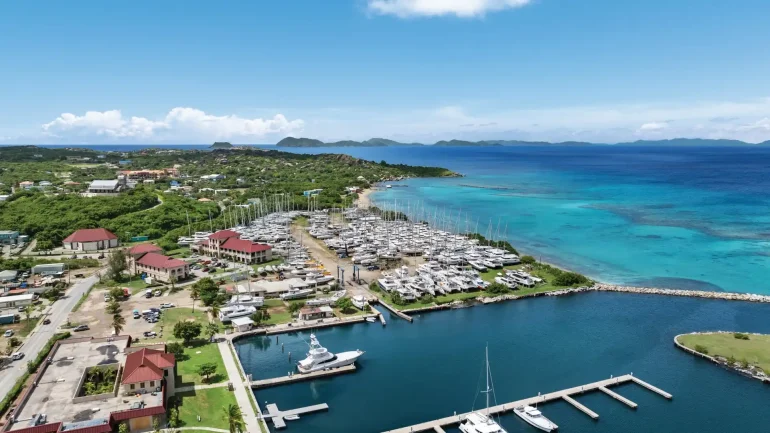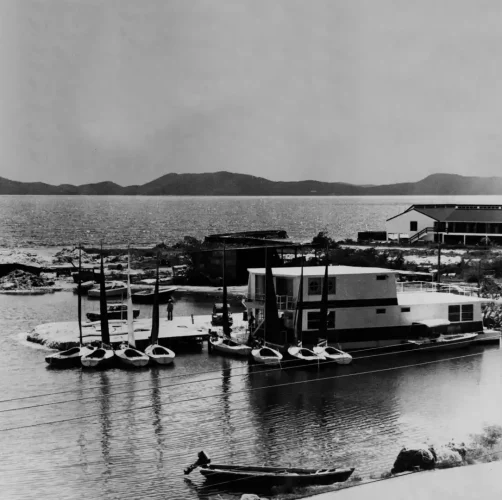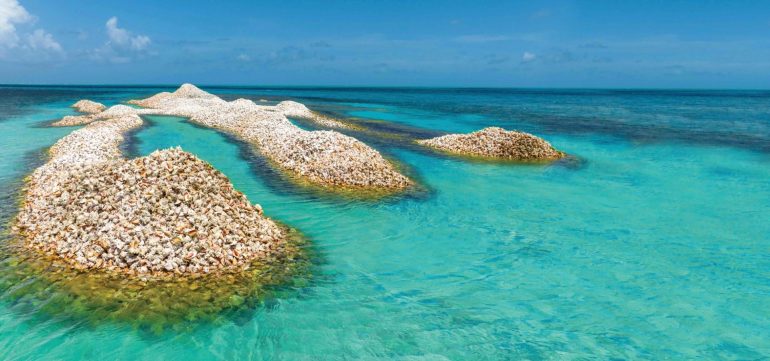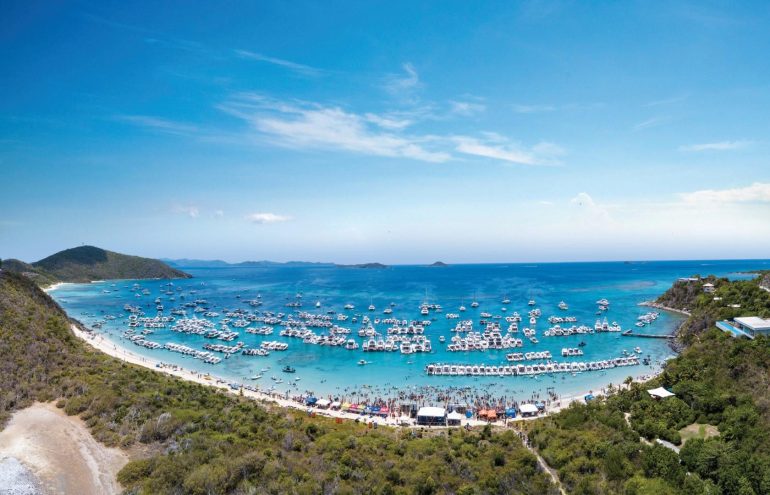BUILDING GREEN – This is the first installment of OBM International’s series, “Building Green.” This month’s article discusses the importance of environmental sustainability.The built environment has a profound impact on our natural environment. The environmental impact of the building design, construction and operation process is enormous. In the United States, buildings consume more than 30% of the total energy and more than 60% of the electricity used annually; each day five billion gallons of potable water is used solely to flush toilets, and the construction process generates huge quantities of solid waste. Building developments result in the loss of natural, biologically diverse habitats, with the introduction of hard impervious surfaces devoid of biodiversity, with adverse affects on patterns of storm water drainage and erosion, and the introduction of our waste, pollutants and contaminants into the ecosystem.
Here in the BVI, when designing and building, we face the same issues. In fact, the relatively rapid recent development of the islands has the potential to have a dramatic affect on the sustainability and quality of life for future generations. We are already seeing the adverse affects of uncontrolled or inappropriate development, particularly on extremely sensitive and vulnerable coastal and marine environments.
Furthermore, we are all, in our own way, responsible for our contribution to climate change and global environmental degradation through our reliance on the consumption of fossil fuels to provide us with our power, transportation, imported goods, water and most other aspects of our energy-hungry lifestyles.
It has become imperative that we recognize these facts and respond positively to reduce the impact of our development activities. Environmentalism is no longer the preserve of a minority group of tree-huggers and activists. The deniers of global warming are now the minority, and improvements in our understanding of the crisis – there is now almost universal agreement that controlling climate change brought about by our greenhouse gas emissions is critical – are leading to improvements in our approach to development and an emphasis on sustainability: development that meets the needs of the present without compromising the ability of future generations to meet their own needs.
Green building practices can substantially reduce or eliminate negative environmental impacts, and improve existing unsustainable design, construction and operational practices. Moreover, green design measures can reduce operating costs, enhance marketability and improve living and working environments. The US Green Building Council’s Leadership in Energy and Environmental Design (LEED) programme is at the forefront in helping to improve building industry standards. LEED is a rating system which evaluates environmental performance from a whole building perspective over a building’s life cycle. The system rigorously evaluates all aspects of the design, construction and operation, from selection of the site, to the design response to the site, to the choice of paint and other building materials and the design and operation of electrical and plumbing equipment, with the aim of achieving certification in one of four ratings categories: Certified, Silver, Gold or Platinum.
The LEED system is becoming increasingly prevalent in the US, with many corporate and governmental organizations now insisting that new projects attain at least Silver or Gold certification. Although the system has generally been applied to commercial projects, the design principles and construction practices required to meet the standards can and should be applied to all building projects, including smaller scale private residences, new buildings or conversions.
In the BVI, we are fortunate that most home owners are keen to build and live in harmony with their site. However it is not simply a question of “blending in” with the landscape. It takes a particularly determined and forward-thinking owner, a creative and knowledgeable design team, and a considerate and careful builder to ensure that the entire process results in a truly sustainable building. Our particular environment presents us with great opportunities and challenges: we have great potential to design our buildings to take advantage of cooling breezes and sheltering shade elements, but we are dependent upon the importation of almost all our building materials; we have the potential to tap into the renewable energy sources of the wind and sun, but we must be prepared for potentially devastating seismic and storm activity.
Whatever the challenges, the time for complacency is over. We all need to look very hard at our lifestyles, and consider what we can do to minimize our impact on the natural environment, which, in the BVI in particular, is critical to our future economy. All of us involved in design and construction are in an influential position – the way we design and use our buildings needs to be understood and addressed so that we do everything we can to act positively.
Next month…
In the next installment of the Building Green series, we will discuss the economic considerations of environmentally friendly building.
Steve Fox is a Senior Architect for OBM International’s BVI office. He is a Leadership in Energy and Environmental Design (LEED) accredited design professional and co-founder of the BVI Sustainable Living Network. For seven decades, OBM International has been the premier full-service design-consulting firm in Bermuda and the Caribbean. Today, with nine multinational offices, projects throughout the world and a diverse team of experts, OBM is a global leader in luxury hotel/resort design development, architecture, master/town planning and interior design, with landmark projects in the Caribbean, the Americas, Europe and the Arabian Peninsula.
OBM currently has design offices located in Antigua, Bermuda, British Virgin Islands, Cayman Islands, Madrid, Miami, Trinidad and Tobago and Turks & Caicos Islands, a strategic alliance in the Bahamas, and a business development office in Bath (UK).
For additional information about OBM or to inquire about services,
please contact:
Cristina Lanao-Rossel, Director of Marketing
OBM International
T 305.441.8767
F 305.441.8242
[email protected]
www.obmi.com






